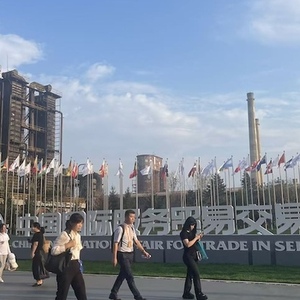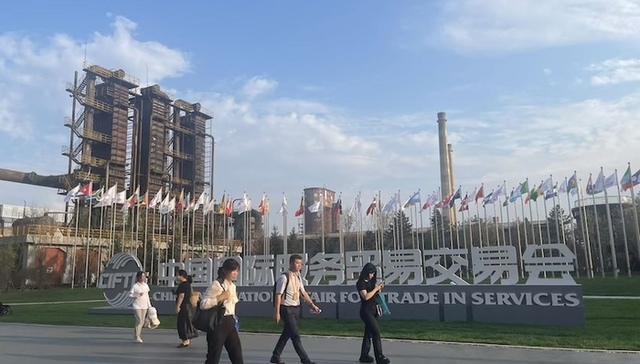by LIU Ting
From Pop Mart's global collectibles to heavy-lift drones, China showcased its services trade drive at this year's China International Fair for Trade in Services (CIFTIS) in Beijing, part of its push to move beyond low-cost manufacturing into higher-value services.
Global services trade reached US$8.9 trillion in 2024, up 9.9% and accounting for 60% of overall trade growth. China is the second-largest player but still runs a deficit, with imports of finance, consulting and intellectual property outweighing exports in tourism and transport. Expanding knowledge-intensive services and boosting manufacturing innovation are seen as critical to closing the gap.
Toy and collectibles giant Pop Mart made its debut as exclusive cultural partner at this year's fair. The Henan-based company has ridden the global popularity of characters like Labubu and Dimoo, had 571 stores in 18 countries by mid-2025, with first-half revenue up 204% to 13.9 billion yuan (about US$2 billion) and net profit up 363% to 4.7 billion yuan (about US$660 million). Executives told Jiemian News they aim to use CIFTIS to show how Chinese IP can meet consumer demand for cultural resonance and emotional value.
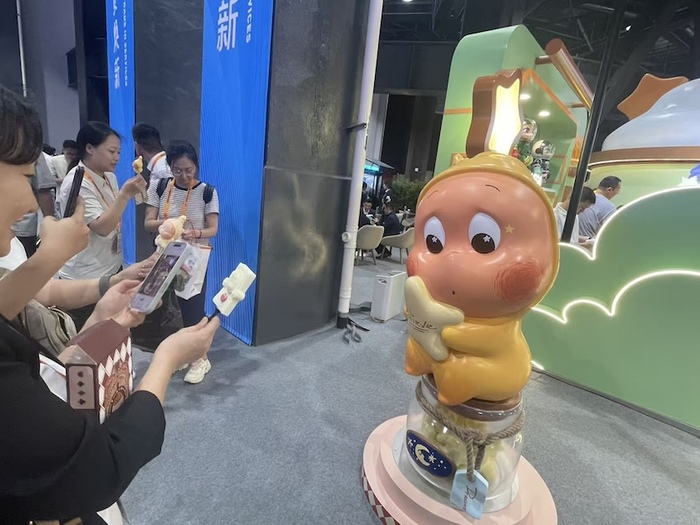
The trend is visible beyond consumer brands. Beijing Hangjing Innovation Technology's FWH-3000 heavy-lift drone, designed for logistics, medical relief and firefighting, is already exported to Southeast Asia, the Middle East and Africa. Founder WANG Wei said the company once had to adjust designs because it relied on foreign suppliers for basic components, but it has since built a self-sufficient supply chain that now covers materials, engines, training and technical services.
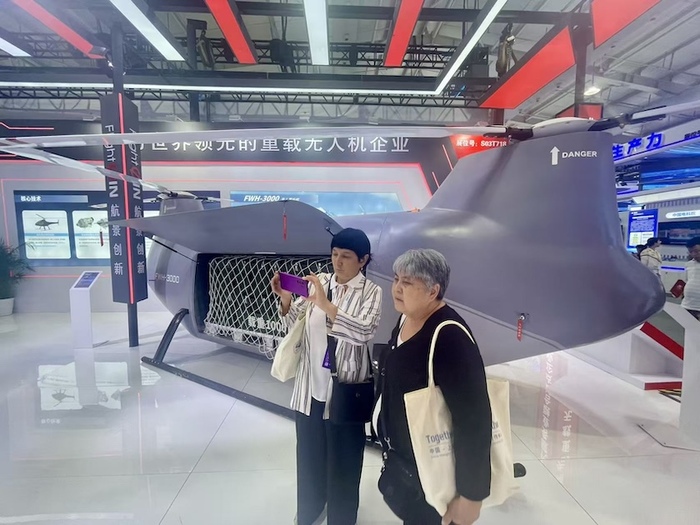
Service exports, meanwhile, are shifting from traditional partners such as the US, Japan and the EU toward Belt and Road markets - a network of emerging economies across Asia and the Middle East. At the launch of a "Digital Pakistan Pavilion," Ambassador Khalil Hashmi said his country is seeking Chinese support in building digital infrastructure. Industrial internet firm Beijing United Information Technology announced plans to extend its supply-chain model to Pakistan, including overseas warehouses for logistics and after-sales services.
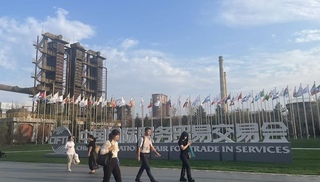
Following this trend, other providers are also expanding overseas. Baixin Group now covers more than 100 markets, mainly in Southeast Asia and the Middle East, while T&C LAW FIRM said most of its recent cases also come from these regions.
Trade frictions remain a risk. Executives noted that while services are spared from tariffs, they still suffer when goods flow slow. Bai Li of logistics group HMG said the effect is similar to delivery services, with demand falling once products stop moving, though with a lag. His firm, which serves the semiconductor sector, is responding by combining product sales with value-added services and using AI to automate cross-border trade.
Policy support is seen as essential for China's services push. Gao Peiyong, former vice-president of the Chinese Academy of Social Sciences said the priority is to create a stable and transparent business environment, by strengthening rules on intellectual property, labor and finance, adding that international openness will be decisive.
This year's CIFTIS, held Sept. 10–14 at Beijing's Shougang Park, drew exhibitors from 54 countries, 21 international organizations and nearly 2,000 companies.
